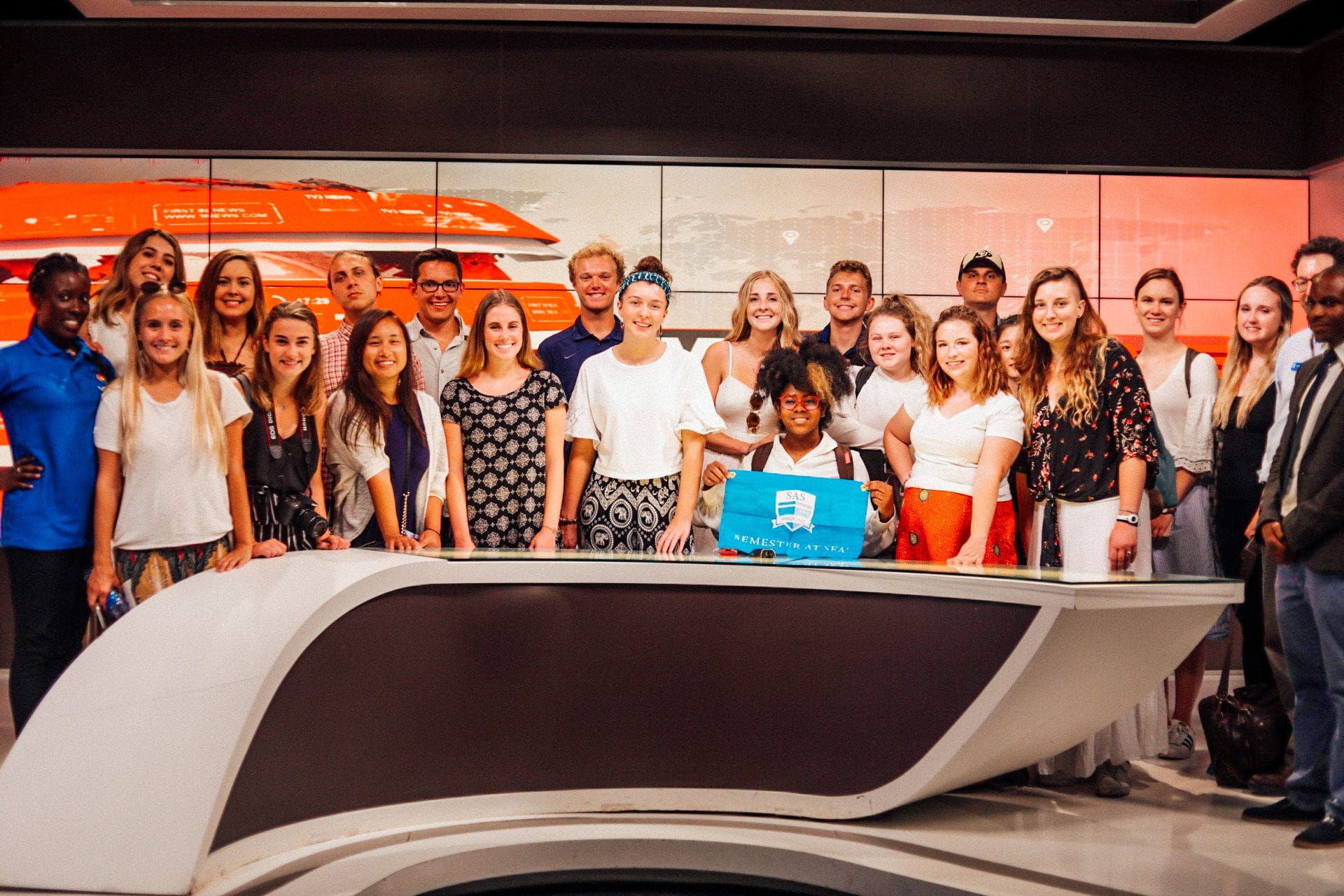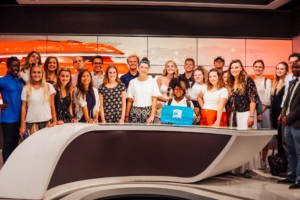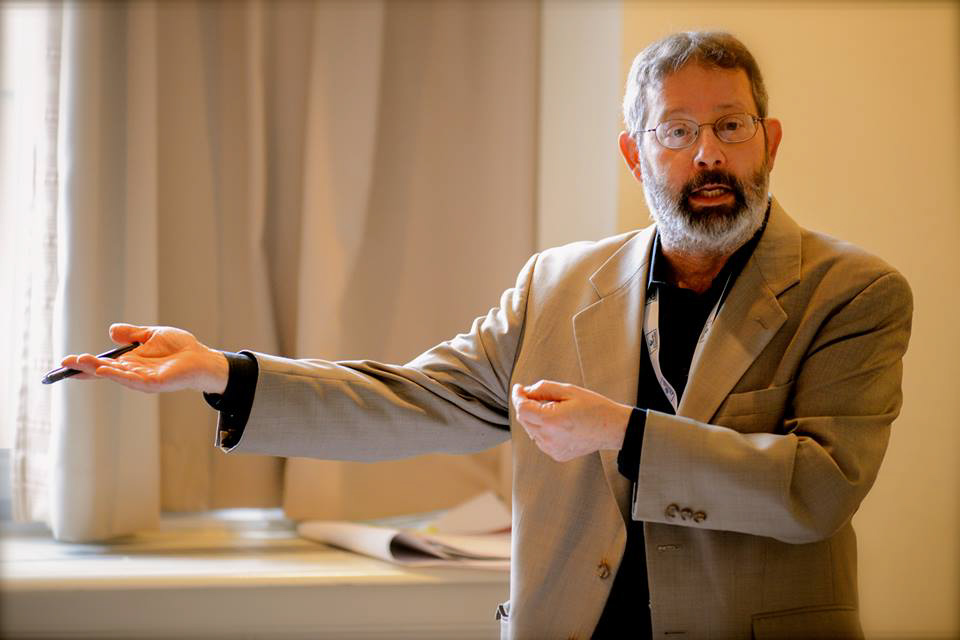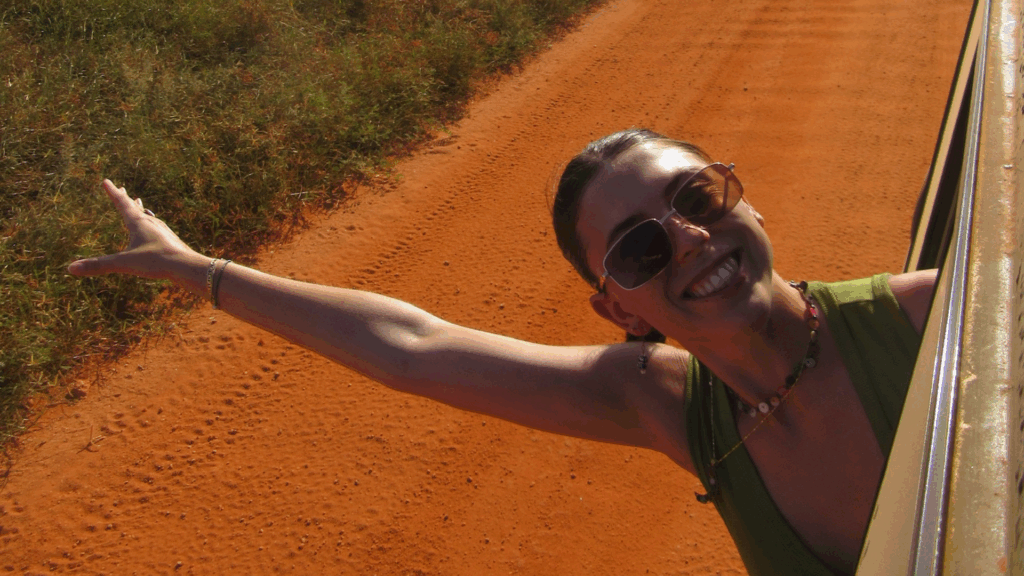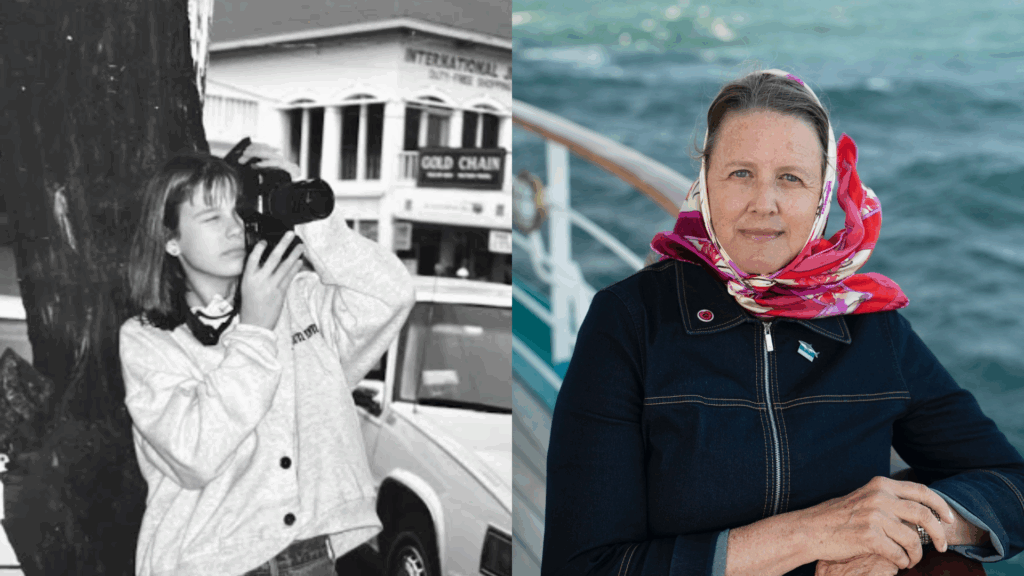Fall 2018 faculty member Dan Berkowitz was a professor at the University of Iowa for 30 years. During his time there, he met a Ghanaian student by the name of Dr. Etse G. D. Sikanku, who was obtaining his Ph.D. abroad.
Not one of them imagined that after 18 months, their paths would cross again in Ghana.
Sikanku returned to Ghana after obtaining his Ph.D. to work as a lecturer at the Ghana Institute of Journalism in Accra, where he invited Fall 2018 Voyagers enrolled in Berkowitz’s Journalism, Peace, and War class to have genuine, enlightening conversations with students from GIJ surrounding the concept of peace journalism and how the media covers conflicts in the 21st century.
“Peace Journalism is a movement that’s been going on for a while that encourages journalists to write about things from a different frame that’s constructive and solution-oriented rather than talking about how bad things are,” Berkowitz said.
In front of a personalized ‘Semester at Sea’ backdrop that covered almost an entire wall in a small, crowded room, voyagers were introduced to both the Rector and Vice Rector of GIJ, equivalent to the president or vice president of a university.
The Rector, Professor Kwamena Kwansah-Aidoo, emphasized the importance of international education and promoting cultural exchanges. After two decades of teaching, he still attributes his most exciting and rewarding experiences to when he was an international student.
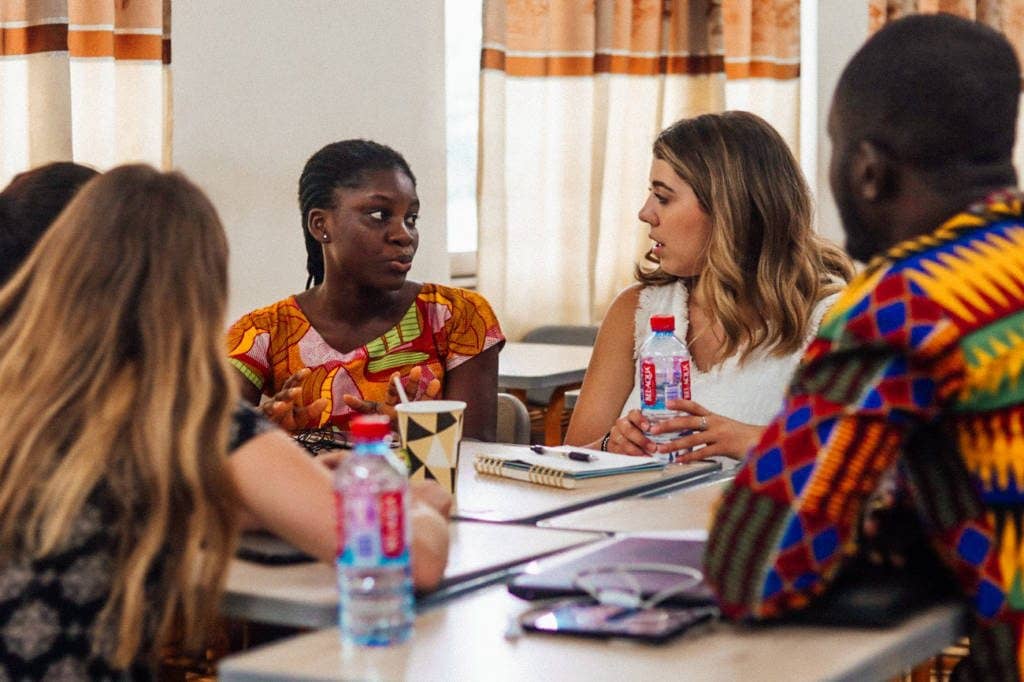
The comparison between core (industrialized, western nations) and periphery (less-developed nations) media coverage kicked off a round of discussion that covered the role of social media, the value of a professional reporter in an online world, and the consistent messages found in core and periphery coverage.
“Usually the core only reports on chaos and havoc about periphery nations,” said Berkowitz. “So in the U.S., we’re only hearing about the bad stuff and our image of developing countries in the world is one that is comprised of fear, chaos, and negativity.”
Students took turns discussing how powerful and instrumental the media has been in shaping the thoughts and behaviors of people around the world, including themselves.
“Because this was many of the Semester at Sea students’ first experience in Africa, we wanted to find out how Africa was represented in their media,” said Emmanual Nartey, an undergraduate student studying Journalism at GIJ. “Then our discussion moved to the sources of conflict and the media’s role in that. Because before you can solve anything, you should be able to know what the little things are that will lead to disagreement, intolerance, and political stability in Africa and around the world.”
According to Nartey, Semester at Sea Voyagers shed light on religious and political ideologies as a common divider in mainstream media. But from the GIJ perspective, ‘sources of conflict’ dealt more with power struggles, poverty, and the unequal distribution of resources, including access to television.
“I thought it was really interesting how the students told us that people listen to the radio more because it’s more universal compared to watching TV or reading,” said Sabrina Shum, a junior majoring in Marketing and Finance at the University of San Diego.
“It’s so normal for us to say ‘we get notifications on our phone’ or ‘we see it on TV,’ but because data is so expensive in Ghana, they don’t rely on their phones for news, and you’re not really forced to think about the implications of that back in the States,” she added.
Following those discussions, voyagers toured TV-3, Ghana’s national private television news network, along with several local and national radio stations transmitting information in English and the local languages of Ghana. The day ended with photo opportunities with Johnnie Hughes, host of Ghana’s Most Beautiful, and a few mock interviews between students and deejays.
At the end of the day, voyagers were able to replace their list of questions with a list of contacts based on their interactions with GIJ students. A simple gesture that brought the event full circle for Sikanku, who couldn’t have imagined recreating a cultural exchange in Ghana with an old professor he had met years ago.
“I studied in the U.S. and went back to Ghana and realized that I think about things in a different way. We’ll be losing out if we don’t encourage that same interaction with students,” Sikanku said.
Because sometimes you have to travel around the world to understand how small the world really is.
